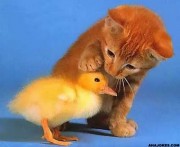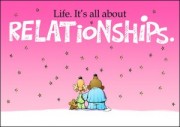 We don’t think of ourselves as using bullying behavior, but how often do we exhibit relational bullying behavior?
We don’t think of ourselves as using bullying behavior, but how often do we exhibit relational bullying behavior?
What kind of a role model for handling conflict and difficult emotions are we for the kids in our lives?
It’s easy to be kind when everything is going good, but how do we treat people when we are frustrated, mad and irritated with their “wrong” behavior.
Relational Bullying Includes:
- Gossiping
- Ignoring
- Blaming and criticizing
- Getting others to side with us against someone
- Giving the silent treatment
- Humiliating and shaming someone behind their back
RELATIONAL BULLYING is often used as a way to PUNISH someone for their behavior.
Is it justified?
Jared told me about his “horrible” boss who frequently criticized and berated him and others in front of an entire group of people.
His boss talked to him like he was a five year old who had just done something terribly wrong, and made him want to crawl underneath a table.
It was difficult for Jared to be kind to his boss. He found himself bad mouthing his boss with every opportunity he had and to whomever would listen. He would describe in detail everything his boss had said and done, trying to get everyone to gang up on and dislike his boss.
It’s easy to be demeaning to people who mistreat us. After all, they DESERVE it, right?
Yet, we are now seeing this type of bullying behavior more and more in children and teens and it’s not healthy for relationships.
What behaviors can we change that would benefit us and help us be a better role model for others?
It’s easy for anyone to be nice to someone they feel good about.
Here are 5 tips to be kind when you don’t feel like being kind.
1. HAVE COMPASSION
Whatever the other person has or is going through in their life has caused them to be the person they are and to act the way they do. They are a human being struggling to get through life with all their insecurities, fears and problems just like we are. Everyone is fighting their own battle. They still deserve kindness.
2. Assertively tell the other person how you feel.
Keep it short and simple.
Jared could calmly and respectfully talk to his boss in private and tell him: “I didn’t appreciate it when you spoke disrespectfully to me like that in front of my co-workers. Next time I would prefer you to take me aside and let me know in a calmer and more respectful tone what you feel I did wrong.”
3. Don’t over think the situation.
After you’ve confronted someone about their behavior, you need to accept that you can choose and control your response but you can’t control their behavior. Don’t overanalyze your behavior or theirs–Thinking about the situation too much can create problems that aren’t there.
4. Limit the number of times you tell the story.
As humans, we tend to add colorful details and exaggerate the situation each time we repeat the story. This is like adding fuel to a fire and can cause more harm in the future . It also makes the situation and the person out to be more evil than they really are. Talk to one person for emotional support but stick to the objective facts without building up or enhancing the story.
5. Never get down to their level.
If you lower yourself in the way you react, then you are no different than they are. Be the absolute opposite of rude to them. Smile and be kind. Spread positive vibes; don’t waste precious energy on negative ones. Someone has to create positive ones to overcome the negative. This is something you do for your own self-respect. Always behave in a way that you can be proud of.
When we focus on kindness, our world becomes kinder; we become kinder. Kindness leads us to a happier life.
10 Reasons to be KIND even when you feel they don’t deserve it.
- Kindness makes you feel good.
- Kindness increases your empathy and compassion for others.
- Kindness makes people feel happy.
- Kindness helps people feel respected, valued, and connected to you.
- Kindness makes people want to be around us.
- Kindness increases our mental and physical health.
- Kindness has a ripple effect in the world.
- Kindness breeds tolerance and understanding.
- Kindness influences kids to be kind.
- Kindness is a gift you give both to yourself and others.
 Over 85% of the time a bystander is present in a bullying situation.
Over 85% of the time a bystander is present in a bullying situation.

 You are influencing the people in your life much more than you realize.
You are influencing the people in your life much more than you realize.  We don’t think of ourselves as using bullying behavior, but how often do we exhibit relational bullying behavior?
We don’t think of ourselves as using bullying behavior, but how often do we exhibit relational bullying behavior?
